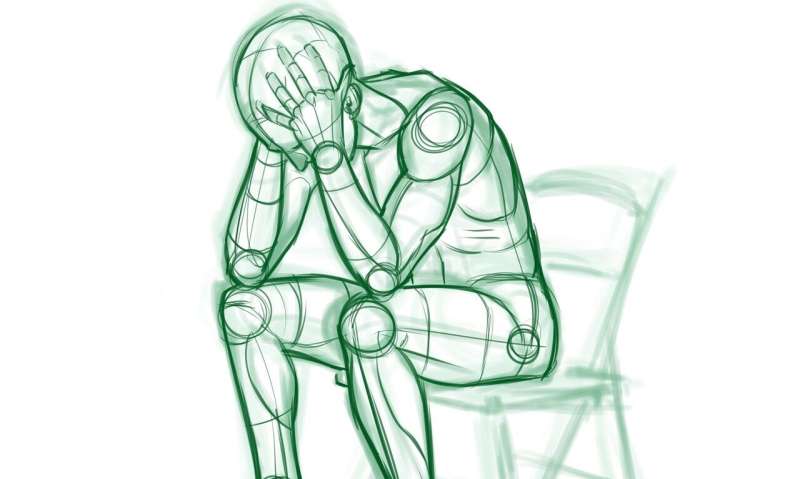Study highlights link between depressive symptoms and stroke risk

People with multiple depressive symptoms have an increased risk for stroke, according to findings recently published in Neurology: Clinical Practice. The collaborative study led by investigators at the University of Alabama at Birmingham and the University of Alabama showed that individuals who scored higher on a test designed to measure depressive symptoms had a higher stroke risk than those with lower scores.
The study involved 9,529 Black and 14,516 white stroke-free participants, age 45 and older, enrolled in the UAB-led REGARDS study. REGARDS is a national, population-based longitudinal study designed to examine risk factors associated with racial and regional disparities in stroke incidence and mortality.
Depressive symptoms were assessed using the four-item version of the Center for Epidemiologic Studies Depression Scale, known as CES-D-4, administered during a baseline evaluation of each participant. The four-item scale evaluates a subset of symptoms and assesses how often respondents felt depressed, sad or lonely or had crying spells.
There were 1,262 strokes over an average follow-up of nine years among the study cohort. Compared to participants with no depressive symptoms, participants with CES-D-4 scores of one to three had a 39 percent increased stroke risk after demographic adjustment. Participants with CES-D-4 scores of more than four experienced a 54 percent higher risk of stroke after demographic adjustment. There was no evidence of a differential effect by race.
"There are a number of well-known risk factors for stroke, such as high blood pressure, diabetes and heart disease; but we are beginning to understand that there are nontraditional risk factors as well, and having depressive symptoms looms high on that list," said Virginia Howard, Ph.D., professor in the Department of Epidemiology in the UAB School of Public Health and senior author of the paper. "These nontraditional risk factors need to be in the conversation about stroke prevention."
One goal of the study was to see if depressive symptoms might help explain the increased risk that Black populations have for stroke, especially in the southern United States.
"The traditional risk factors don't explain all the difference in stroke risk between races," said Cassandra Ford, Ph.D., R.N., Capstone College of Nursing at the University of Alabama and the study's first author. "The results have been mixed among the few studies that enrolled Black participants and examined race and depressive symptoms in relation to stroke. Depression often goes undetected and undiagnosed in Black patients, who are frequently less likely to receive effective care and management. These findings suggest that further research needs to be conducted to explore nontraditional risk factors for stroke. The implications of our findings underscore the importance of assessing for this risk factor in both populations."
The takeaway, according to Howard, is that medical professionals need to recognize that stroke risk from depressive factors is high.
"The standard questions asked in the typical physician/patient encounter need to be updated to include questions regarding depressive symptoms," she said. "Physicians in primary care, internal medicine and geriatrics need to consider asking their patients about depressive symptoms."
"As nurses, we care for the entire person," Ford said. "When a patient has a particular condition, such as diabetes, hypertension or stroke, that is the focus of diagnosis and care. Our study provides support for considering nontraditional risk factors during patient assessment, particularly conducting some mental health screenings."
More information: Cassandra D. Ford et al. Depressive symptoms and risk of stroke in a national cohort of blacks and whites from REGARDS, Neurology: Clinical Practice (2020). DOI: 10.1212/CPJ.0000000000000983
















